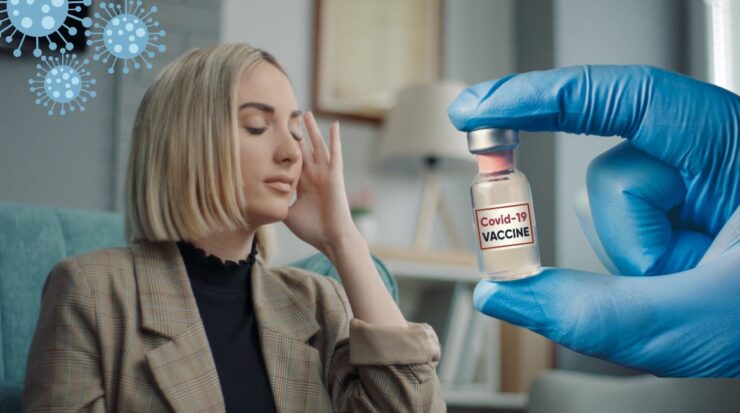It is common to experience minor side effects after receiving a vaccination, especially one that was recently developed. Headache is one of the possible side effects of the COVID-19 vaccine, and understanding what to expect can go a long way toward easing any concerns you may have.
This guide provides information on headaches after receiving a COVID-19 vaccine, including the risks associated with it, the symptoms to watch out for, and suggested treatments and lifestyle changes that can help manage your headache.
By educating yourself on what you can expect following your COVID-19 vaccination and learning how to best manage any resulting headache, you can rest assured in the knowledge that you’re taking every available measure to protect yourself from this virus.
Causes of Headache After COVID Vaccine
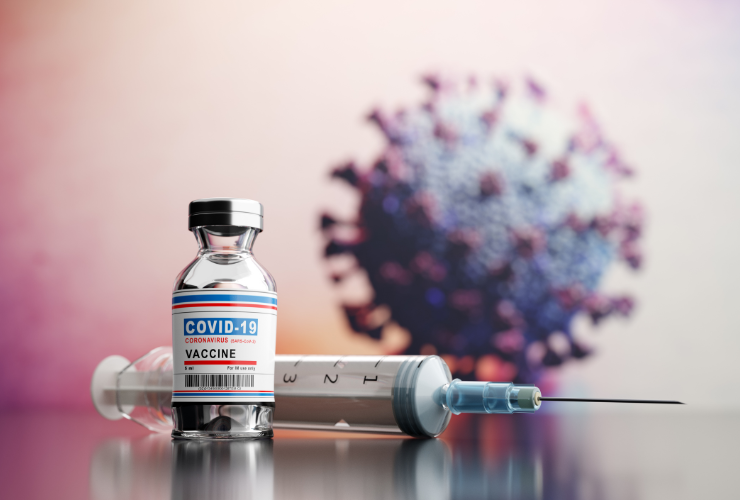
The COVID-19 vaccine is a critical part of the process to slow the spread of the disease and reduce the number of deaths. However, one side effect that has been noticed is a headache after receiving the vaccine.
In this article, we will examine the potential causes of headaches after the COVID-19 vaccine in order to better understand how to treat them.
Possible Side Effects of the Vaccine
The COVID-19 vaccine has been established as safe and effective, but side effects are possible. Mild reactions are common and generally harmless, but more serious reactions may occur. Headaches after the COVID-19 vaccine have been reported in some individuals, although it is unclear if there is a direct link between the vaccine and headaches in all cases.
Individuals who have recently had a reaction to drugs or vaccines should not get the COVID-19 vaccine. Additionally, it is important to inform your doctor of any existing medical conditions or allergies that you may have before getting vaccinated.
They may be caused by a variety of reasons during and after receiving the COVID-19 vaccine. Possible causes that have been associated with vaccination include dehydration due to fluid loss from fever or other side effects; tension caused by emotional stress; physical responses such as dizziness from needles; or muscle pain resulting from active injection sites.
Other triggers for headaches after receiving a COVID-19 vaccination could include a reaction to medication included in the dosage (such as lipids), underlying conditions like chronic migraines, or additional health complications such as an autoimmune disorder that flares up after injection of foreign substances into body tissues.
If you experience headaches soon after being vaccinated for COVID-19, be sure to monitor these symptoms closely and transmit information about them to your healthcare professional when necessary – doing so will help them accurately assess your condition and determine appropriate treatments if needed.
Other Potential Causes
Though the cause of headaches after receiving the COVID-19 vaccine is not entirely clear, there are some potential underlying causes that should be explored.
Many people experience them due to stress and anxiety, especially during a pandemic. Additionally, dehydration caused by prolonged fasting prior to the vaccine could be a major factor. Other causes of them include lack of sleep and poor diet.
In addition, the injection itself can cause pain or discomfort at the site of injection which may contribute to headache symptoms. Finally, fluctuations in hormones for people taking hormone replacement therapy (HRT) may also trigger headache symptoms.
Symptoms of a Headache After the COVID Vaccine

A headache after receiving the COVID-19 vaccine is one of the common and expected side effects, experienced by some individuals. The good news is that they usually disappear in a day or two and are not long-lasting.
The most commonly reported symptoms of headache after receiving the COVID-19 vaccination include a dull, throbbing sensation that may be felt all over your head or worse in one or both temples. You may also experience sensitivity to light and sound, nausea, confusion, difficulty concentrating, or dizziness. In some cases, the headache can be accompanied by fatigue.
If you are experiencing any other worrisome symptoms such as fever, chills, severe vomiting or an intense headache that extends more than 48 hours it is important to contact your healthcare provider right away.
Additionally, if you’re primarily dealing with localized pain in your neck and/or shoulders this could be referred pain from temporomandibular disorder (TMD) which could be worsened by stress related to a vaccine. Whichever the case might be it’s best to consult with your doctor to determine the appropriate course of action.
It’s important to note that getting vaccinated provides protection against severe illness due to COVID-19 infection which can lead to serious health issues such as long Covid syndrome or death in some instances. It’s recommended that you get vaccinated if possible even if there are mild side effects associated with it such as headaches after Covid vaccination.
Diagnosis and Treatment
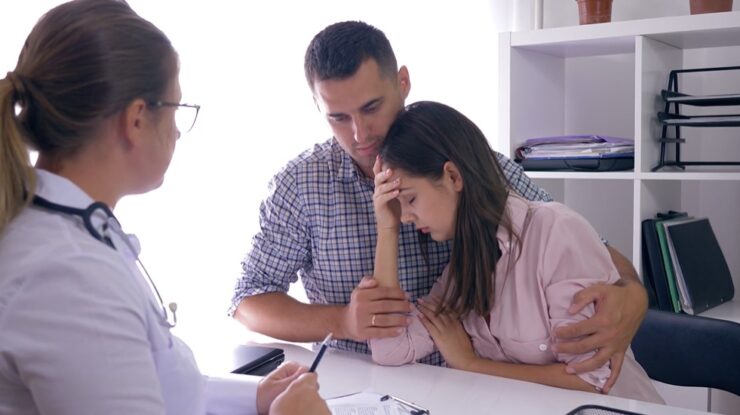
They can be one of the most common side effects after receiving a COVID-19 vaccine. While the majority of them are mild, some can be severe and can last for a few hours or even several days.
Understanding the cause of the headache and the appropriate treatment can help alleviate the pain. Let’s look at what can be done to diagnose and treat headaches after a COVID-19 vaccine.
Diagnosis
If you experience a headache after getting the COVID-19 vaccine, it is important to make sure that it is not indicative of a more serious condition. You should contact your healthcare provider if you experience severe pain or develop other symptoms such as nausea, vomiting, vision changes, or impaired speech.
The most common cause of a headache after receiving the vaccine is post-vaccination hypotension, which occurs when a person’s blood pressure drops suddenly after receiving the immunization. It is important to identify and treat this condition promptly in order to reduce your risk of further complications.
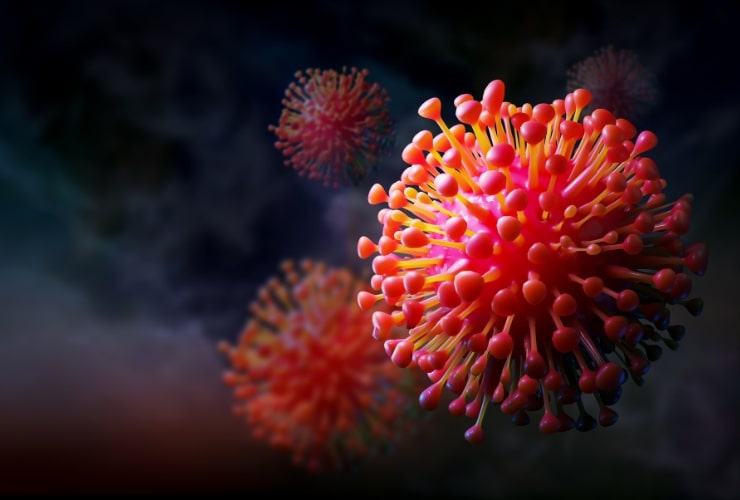
In order to diagnose post-vaccination hypotension, your doctor will take your pulse and check for signs of dehydration or low blood sugar levels. Your doctor may also perform other tests such as an electrocardiogram (ECG) or an echocardiogram (ECHO) in order to measure your heart rate and rhythm or sound waves transmitted through your veins. If possible, they may also recommend that you monitor your BP at home with a cuff monitor. This will help them assess any changes in BP over time.
Once diagnosed with hypotension due to receiving the vaccine, treatment typically begins by having you lie down and increase fluid intake until symptoms improve.
Other treatment options may include medications such as antihistamines and anticholinergic medications which can help reduce inflammation and control side effects from the vaccine itself, as well as blood pressure medications if necessary. Your healthcare provider may also recommend changes in lifestyle such as reducing stress levels or increasing physical activity in order to help manage headaches associated with post-vaccination hypotension going forward.
Treatment
The pain after a COVID-19 vaccine should be treated symptomatically. Recommended treatments include taking over-the-counter pain relievers such as ibuprofen or acetaminophen, applying a cold compress to the area where you have pain, doing some light stretching, or taking a warm bath.
If you are experiencing more severe pain, your doctor may prescribe stronger medications such as opioids or corticosteroids. It is important to talk to your doctor before taking any medication and make sure to follow their instructions carefully.
In addition to these treatments, there are other things you can do at home to help manage your symptoms. It is important that you rest and avoids strenuous activity until the headache resolves; try to get as much sleep as possible. Drink plenty of fluids and maintain a healthy diet full of fruits and vegetables. Stress can make symptoms worse so try some relaxation techniques like yoga, deep breathing exercises, meditation, or tai chi. Finally, try using aromatherapy or massaging oils into the skin for additional relief.
Prevention

While the severity of the headache can range from mild to severe, it usually goes away after a few days. To help prevent or reduce symptoms associated with headaches, you should do the following:
– Get plenty of rest before and after receiving your vaccine
– Drink plenty of fluids – staying well hydrated may help reduce the severity of headaches associated with vaccination
– Avoid caffeine or alcohol before and after vaccination
– Eat a healthy, balanced diet to give your body all the nutrition it needs
– Take pain relief medication if needed – aspirin, ibuprofen, or paracetamol can be taken to alleviate any pain symptoms you are experiencing
– Talk to your doctor if your head pain persists or gets worse
Taking these preventative steps may help ease some of the headache discomfort caused by getting vaccinated for COVID-19. However, if you experience a severe headache that lasts longer than 48 hours following vaccination, it is advised that you contact your doctor immediately in order to rule out any other potential cause.
FAQs
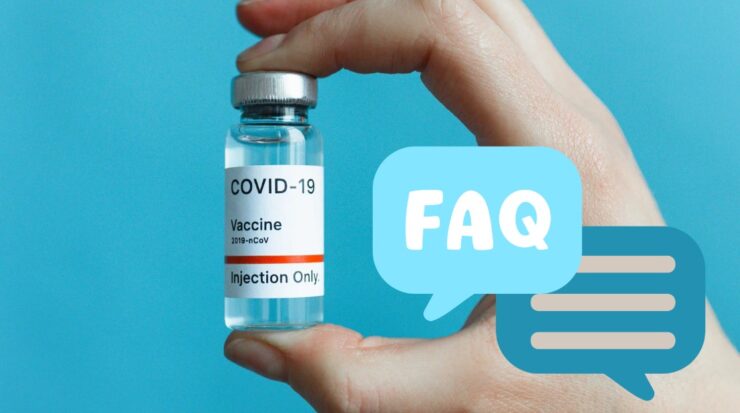
Should I be concerned if I experience a headache after the COVID vaccine?
In most cases, it is not a cause for concern. However, if you are experiencing severe symptoms or are unsure, consult a medical professional.
Can I still receive the COVID vaccine if I have a history of migraines?
Yes, individuals with a history of migraines can still receive the COVID vaccine.
Are headaches more common with certain types of COVID vaccines?
There is no evidence to suggest that they are more common with one type of COVID vaccine over another.
Can drinking water help alleviate a headache after the COVID vaccine?
Drinking water can help alleviate it after the COVID vaccine, as dehydration can contribute to headaches.
Can rest help alleviate a headache after the COVID vaccine?
Yes, rest and relaxation can help alleviate a headache after the COVID vaccine.
Are there any natural remedies that can help alleviate a headache after the COVID vaccine?
Natural remedies such as applying a cold compress to the forehead or practicing relaxation techniques can help alleviate a headache after the COVID vaccine.
Can headaches after the COVID vaccine be prevented?
While headaches after the COVID vaccine cannot be prevented, staying hydrated and getting plenty of rest can help alleviate symptoms.
Is it safe to take pain relievers after the COVID vaccine?
Yes, it is safe to take over-the-counter pain relievers such as acetaminophen or ibuprofen after the COVID vaccine.
If I experience a headache after the first dose of the COVID vaccine, will I experience one after the second dose as well?
It is possible to experience it after both the first and second doses of the COVID vaccine, but it is more common after the second dose.
Conclusion
In conclusion, it appears that severe headaches related to the COVID-19 vaccine are extremely rare and, when they do occur, are typically manageable with over-the-counter pain relief. However, if the headache is more severe and lasts more than 24 hours after the initial vaccine dose, individuals should contact their healthcare provider for further medical advice.
It is important to note that while some people report having a headache after receiving their first COVID-19 vaccine dose, this side effect can be prevented by drinking plenty of fluids before, during, and after vaccination.
It is also important to remember that the benefits of getting vaccinated far outweigh any potential discomfort associated with it. Vaccination not only protects an individual from serious coronavirus infection but also helps prevent the spread of infection throughout the community.

